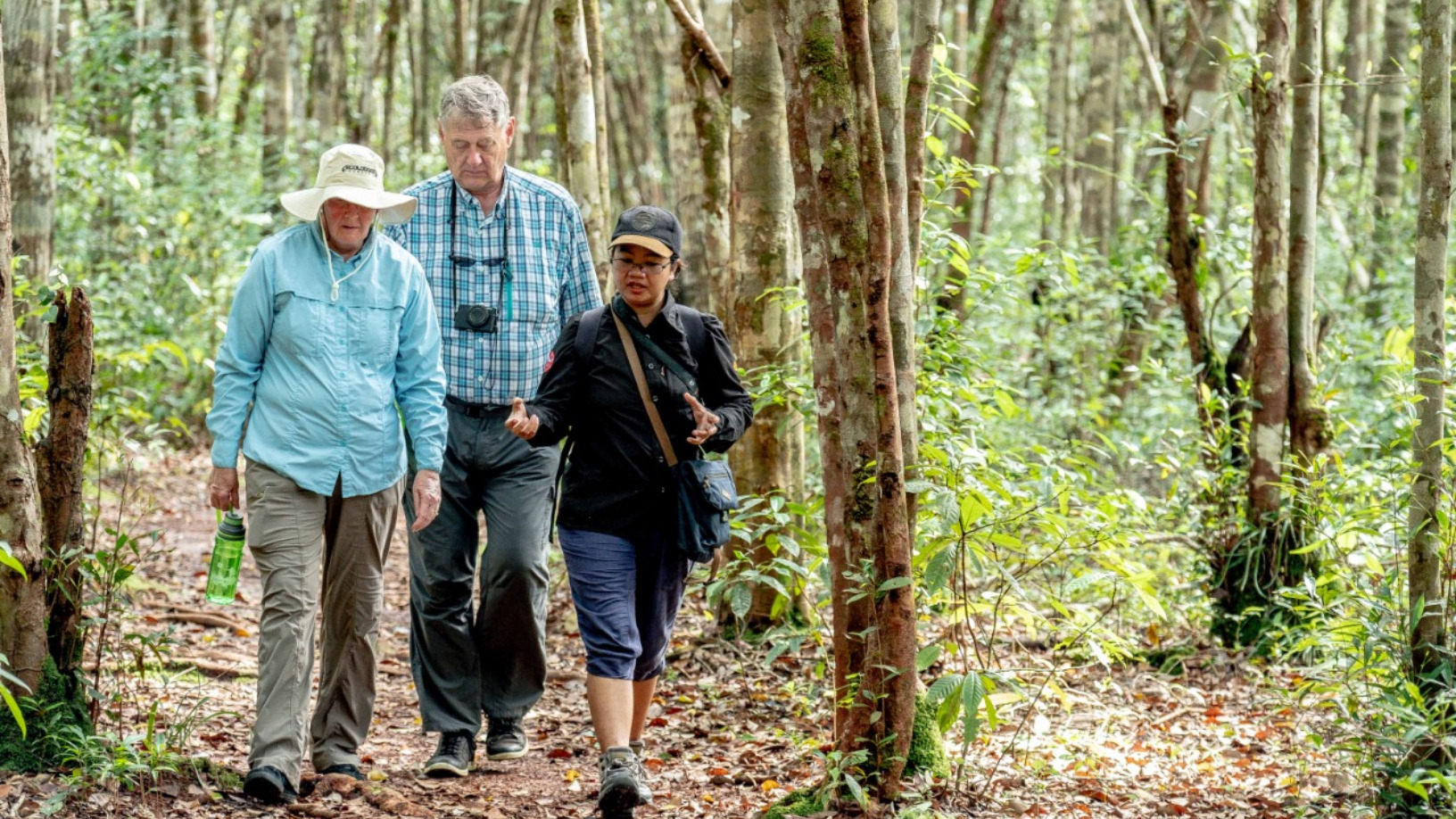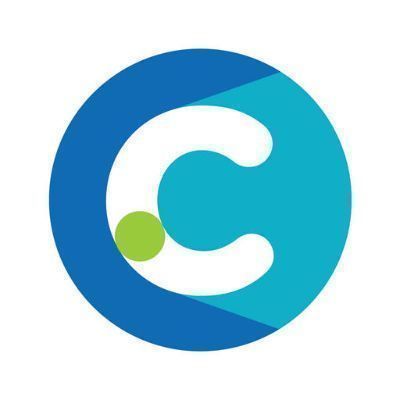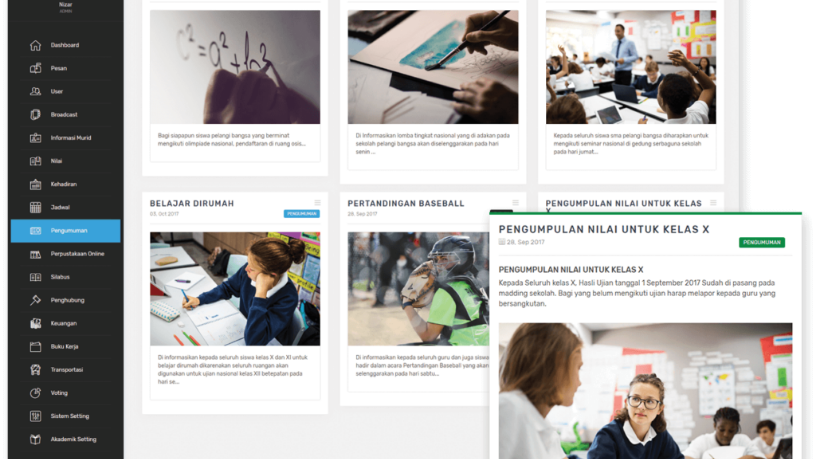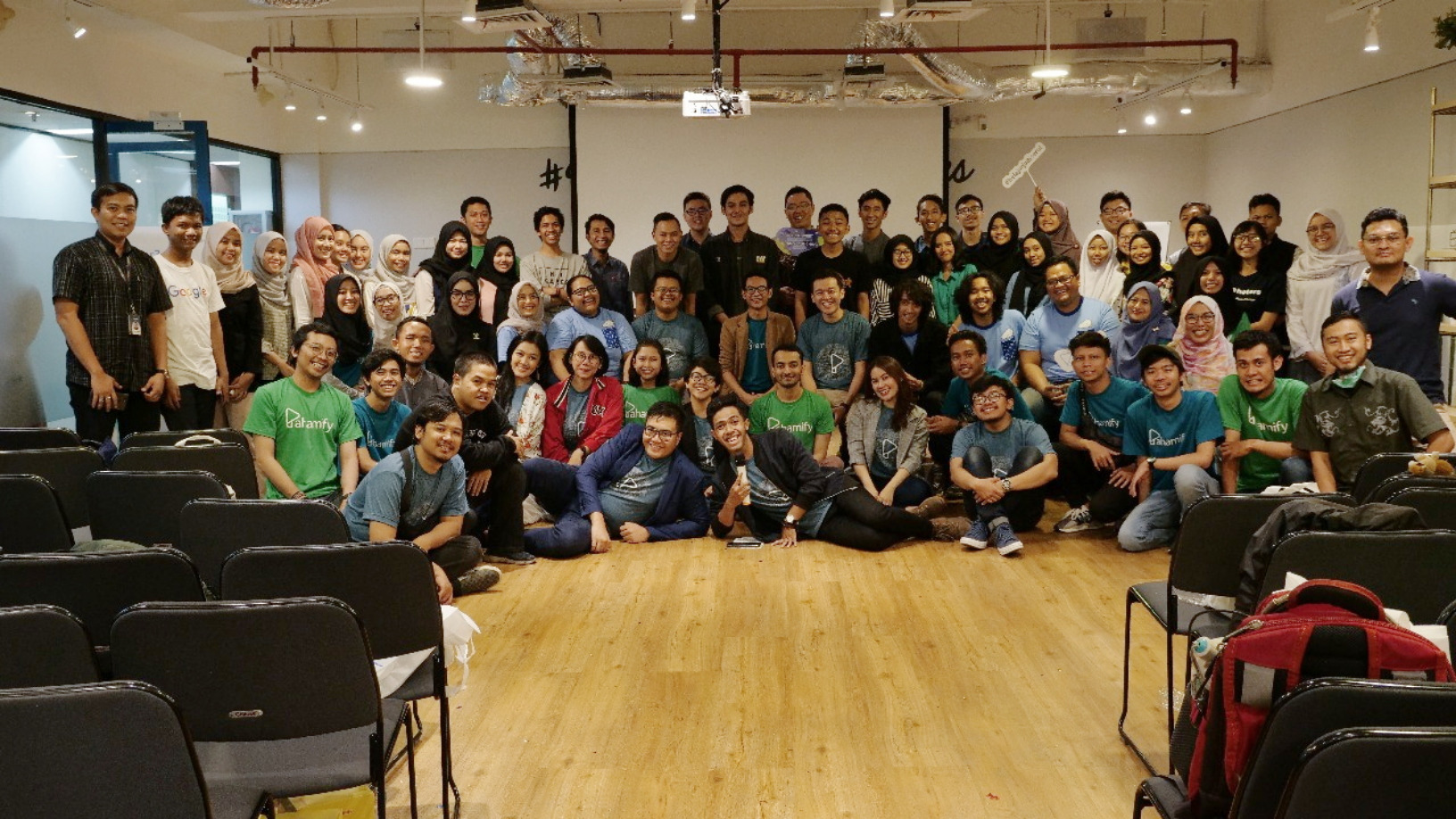Edtech startup Cakap has been offering free online English lessons to workers in the creative and tourism industries left unemployed because of the Covid-19 pandemic, in partnership with Indonesia’s Ministry of Tourism and Creative Economy.
Titled Digital English Course, the lessons take place via Cakap’s live-tutoring platform, which runs virtual foreign language classes taught by professional teachers with real-time interaction. By offering free English classes, the ministry aims to increase the workers' competitive edge, Minister of Tourism and Creative Economy Wishnutama Kusubandio said in a press release.
The program targets creative industry players across all sectors including video game development, advertising, interior and product design, architecture, music, fashion, culinary arts and audiovisual. Tourism workers, particularly tour guides, homestay managers and members of Kelompok Sadar Wisata, or “Pokdarwis”, a community of villagers promoting and managing their villages as holiday destinations, are also encouraged to join.
"This pandemic has had a major impact on the tourism industry due to the restrictions on community mobility. Even so, tourism actors must continue to engage in positive activities by increasing their skills to face the current conditions and challenges that will emerge after the pandemic," Wishnutama said.
Originally launched as Squiline in 2013, Cakap, which is Indonesian for conversing, took on its current moniker last year. In a press release, Cakap CEO Tomy Yunus said his company was honored that the ministry chose to partner with its edtech platform, which had acquired a total of 400,000 users since its rebranding to Cakap. Its basic one-year course, “English Brush-up,” costs IDR 10,950,000 while its one-year “English Intensive” costs IDR 22,740,000.
Yunus said the startup “support(s) the improvement of (Indonesia's) human resources in the midst of the Covid-19 pandemic through our two-way, distance-learning initiatives, which can be utilized by communities throughout the province to remain productive from home.”
Mandarin, Japanese lessons next
There were limited places for the course and a selection process took place at the end of April 2020, with around 600 people signing up. Though the filtering process was not made public, the end result was the selection of 100 participants who were then put into 10 different groups with their own distinct classes. Hailing from 28 provinces around Indonesia, the final 100 participants had to undergo various tests to assess their existing English language fluency.
Those selected for the program are to engage in the online learning activities for six months, from May to November this year. Held daily for an average of 50 minutes each, sessions comprise the basics of the English language as well as lessons pertaining to terms specific to the creative field.
As with Cakap's regular classes, the lessons are being taught by professional teachers virtually and can thus be taken safely from home via the IOS, Android or desktop platforms. Participants were also given soft copies of the modules to utilize during and after each session. Those who attend more than 85% of the virtual classes will receive a certificate of program completion.
According to Yunus, there are further plans with the ministry to provide free Mandarin and Japanese language lessons in future since both programs already exist on the Cakap platform. The startup also has an Indonesian language program aimed at foreigners living in the country.
Partnering up
Cakap has also been partnering with other parties to expand the usage of the startup's platform.
In April, Cakap worked with the Awadah Group, an initiative set up by Islamic activist-politician Yenny Wahid, daughter of former Indonesian president Abdurrahman “Gus Dur” Wahid, to create a platform within the Cakap app so users can watch Muslim preachers teach and preach just in time for the Ramadhan fasting month. The event was called Awadah Dakwah Festival, which translates to Awadah Preaching Festival.
The same month, Cakap worked with the Indonesian Hotel and Restaurant Association on a program to provide English language lessons to around 100,000 workers in the hotel and restaurant industry. The program's goal is to help workers qualify for Indonesia's “kartu pra-kerja”– literally “pre-work card” in English – a government program card for those who have been laid off and require new skills to qualify for new jobs. Established by Indonesian President Joko Widodo, the program provides online training to these workers.
Cakap raised two major rounds of funding during its time as Squiline: a seed round from Prasetia Dwidharma in April 2016 and a Series A round from InvestIdea in December 2018. Both amounts remain undisclosed. As Squiline, the company partnered with a few educational institutions around the country, including the Beijing Language Culture College, Atmajaya University and Universitas Indonesia.
Yunus sees the recent collaborations as positive for Cakap as well as the country during this period. Despite the challenges presented by the pandemic, he prefers to look on the bright side and grasp the opportunity it represents.
He said: "This decline in activity within the tourism industry could actually be a golden opportunity for workers in the tourism sector to improve their [language] skills.”














